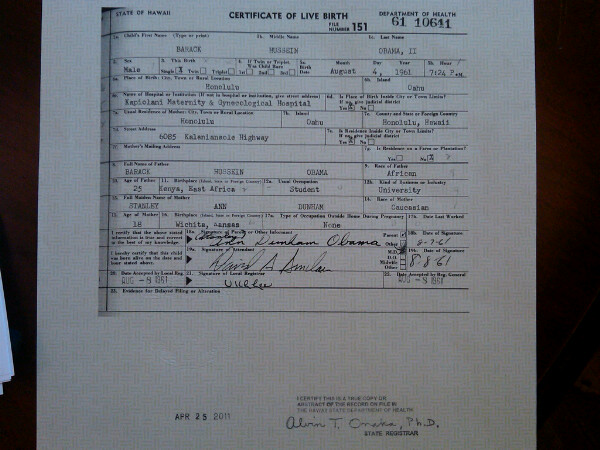Elk v. Wilkins 112 U.S. 94 (1884)
“The distinction between citizenship by birth and citizenship by naturalization is clearly marked in the provisions of the constitution, by which ‘no person, except a natural-born citizen, or a citizen of the United States at the time of the adoption of this constitution, shall be eligible to the office of president;’ and ‘the congress shall have power to establish an uniform rule of naturalization.’ Const. art. 2, 1; art. 1, 8. By the thirteenth amendment of the constitution slavery was prohibited. The main object of the opening sentence of the fourteenth amendment was to settle the question, upon which there had been a difference of opinion throughout the country and in this court, as to the citizenship of free negroes,
Scott v. Sandford, 19 How. 393 and to put it beyond doubt that all persons, white or black, and whether formerly slaves or not, born or naturalized in the United States, and owing no allegiance to any alien power, should be citizens of the United States and of the state in which they reside.
Slaughter-House Cases, 16 Wall. 36, 73;
Strauder v. West Virginia 100 U.S. 303 , 306
This section contemplates two sources of citizenship, and two sources only: birth and naturalization. The persons declared to be citizens are ‘all persons born or naturalized in the United States, and subject to the jurisdiction thereof.’ The evident meaning of these last words is, not merely subject in some respect or degree to the jurisdiction of the United States, but completely subject to their political jurisdiction, and owing them direct and immediate allegiance.”
.
This section contemplates two sources of citizenship, and two sources only: birth and naturalization. The persons declared to be citizens are ‘all persons born or naturalized in the United States, and subject to the jurisdiction thereof.’
Elk recognized only two kinds of citizenship Natural born and Naturalized.
Since people born in the United States are not naturalized citizens- they are natural born citizens.
As Elk points out.
Elk CLEARLY states:
"all persons, white or black, and whether formerly slaves or not, born or naturalized in the United States, and owing no allegiance to any alien power, should be citizens of the United States"
OWING NO ALLEGIANCE TO ANY ALIEN POWER. Everyone knows Obama was born a British Subject, so he was not eligible for citizenship!
)
Elk is an interesting case- regarding whether an Indian born within the United States- and owing allegiance to his sovereign tribe was born a citizen
Elk also clearly states:
Indians born within the territorial limits of the United States, members of and owing immediate allegiance to one of the Indiana tribes (an alien though dependent power), although in a geographical sense born in the United States, are no more "born in the United States and subject to the jurisdiction thereof," within the meaning of the first section of the Fourteenth Amendment,
than the children of subjects of any foreign government born within the domain of that government,
or the children born within the United States of ambassadors or other public ministers of foreign nations.
Note the distinctions there
Children of subjects of any foreign government born within the domain of that government
Obama
was not born within the domain of any other government
Note again the distinction here:
or the children born within the United States of ambassadors or other public ministers of foreign nations.
Obama was not born to a foreign diplomat
What is not mentioned by the courts is what you claim- that a person born with citizenship in another country is not a citizen.
Matter of fact- Elk doesn't care about the citizenship of the person's parents at all.
"The Slaughterhouse cases follows Elk and it states:
"The first observation we have to make on this clause is that it puts at rest both the questions which we stated to have been the subject of differences of opinion. It declares that persons may be citizens of the United States without regard to their citizenship of a particular State, and it overturns the
Dred Scott decision by making all persons born within the United States and subject to its jurisdiction citizens of the United States. That its main purpose was to establish the citizenship of the negro can admit of no doubt. The phrase, "subject to its jurisdiction" was intended to exclude from its operation children of ministers, consuls, and citizens or subjects of foreign States born within the United States."
"Matter of fact- Elk doesn't care about the citizenship of the person's parents at all."
YES, IT 100% DOES, when it says:
"By the thirteenth amendment of the constitution slavery was prohibited. The main object of the opening sentence of the fourteenth amendment was to settle the question, upon which there had been a difference of opinion throughout the country and in this court, as to the citizenship of free negroes,
Scott v. Sandford, 19 How. 393 and to put it beyond doubt that all persons, white or black, and whether formerly slaves or not, born or naturalized in the United States, and owing no allegiance to any alien power, should be citizens of the United States and of the state in which they reside.
Slaughter-House Cases, 16 Wall. 36, 73;
Strauder v. West Virginia 100 U.S. 303 , 306"
Maybe you missed where it said: "all persons, white or black, and whether formerly slaves or not, born or naturalized in the United States,
and owing no allegiance to any alien power, should be citizens"
The ONLY way you can owe no allegiance to an alien power is to not a foreign parent to create that divided allegiance!





